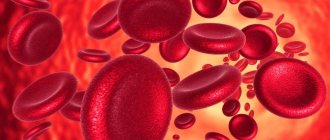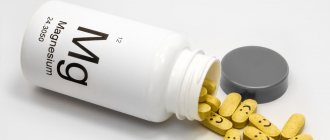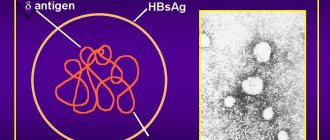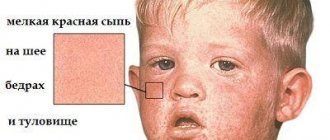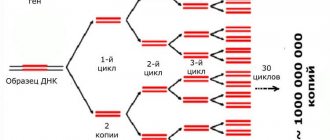Why is iodine needed in the body?
It supports normal thyroid function, has a positive effect on hormonal balance, brain function and improves immunity.
If there is a lack of this substance in the body, a person immediately notices it: emotional stability is disrupted, muscle pain and skin problems appear.
Therefore, it is very important to maintain the required level of iodine.
This element performs a number of basic functions:
- regulates energy exchange in thyroid cells;
- frees cells from harmful substances;
- normalizes breathing intensity;
- fights infections.
Products containing iodine
For people who do not experience iodine deficiency, it is enough to use iodized table salt daily - a means of combating the deficiency of the element in a number of countries.
Among plants, the first place in iodine content is occupied by kelp (sea kale). 100 g of product contains a double daily portion of the element - 300 mcg.
Below in parentheses the iodine content is indicated in mcg per 100 g of product.
| Cod liver (370) | meat of the same fish (135) | squid (300) | boiled shrimp (110) |
| salted herring (77) | canned sardine (27) | champignons (18) | 1 egg (18) |
| pork (17) | whole milk (6.5) | beef (11) | vegetables (average 10) |
| hard cheese (11) | bread (9) | buckwheat (3.5) | fruit (2) |
A rationally designed menu, taking into account the consumption of iodine-containing products, will supply the thyroid gland with a sufficient amount of iodine.
Consequences of iodine deficiency
- Symptoms of iodine deficiency in the body can manifest themselves in different ways. The level of hemoglobin in the blood decreases, so the consequences are quite serious. If the problem is incorrectly diagnosed and the source of trouble is not recognized, then traditional treatment will not be beneficial.
- If the body lacks iodine for an extremely long time, this can lead to mental and physical retardation.
- A deficiency of this substance in a pregnant woman negatively affects the formation of all fetal systems, the formation of the skeleton, and can even cause cretinism. In the early stages, iodine deficiency is fraught with miscarriages and frozen pregnancies.
Causes of iodine deficiency
The optimal concentration of the microelement in the body of an adult is considered to be approximately 25 mg . 3-4% of this figure comes from drinking water, 4-5% from the air, 25-30% from plant products and more than 50% of iodine from animal products. A table with foods that contain the most iodine can be seen here.
However, even when carefully planning their diet and regularly taking walks on the seaside, some people continue to suffer from iodine deficiency. As practice shows, the reason is the peculiar absorption of this halogen.
- Banal chlorinated water, medications with a high fluorine/bromine content can actively deplete iodine reserves.
- No less aggressive to this element are such foods as cauliflower, mustard, soybeans, radishes, as well as thermal processing of food.
- You should be careful when taking aspirin, penicillin, streptomycin, and hormonal drugs that block the absorption of halogen.
There are often other causes of iodine deficiency:
- Chronic dysbacteriosis.
- Individual intolerance to sources of the element.
- A monotonous diet that does not contain seafood, iodized salt, or sea fish.
- Accommodation in mountain ranges, places very remote from sea coasts.
- Smoking, alcoholism.
- Radioactive exposure.
- Contraception using hormonal drugs.
- Selenium deficiency.
IMPORTANT! Women should be especially attentive to iodine levels, since their health directly depends on the functioning of the thyroid gland and the stability of hormonal levels.
The possibility of future motherhood and the safe bearing of the baby may also suffer from insufficient microelement content, which will lead to menstrual irregularities, infertility, the threat of miscarriage/premature birth, and serious pathologies of intrauterine development.
For this reason, expectant mothers are recommended to increase the dose of iodine to 400 mcg per day . The same applies to nursing women, since iodine tends to be excreted in breast milk.
Symptoms
Deficiency can manifest itself in different ways.
But there are signs that are most pronounced:
- swelling;
- muscle weakness;
- pain in the thoracic and lumbar spine;
- drowsiness;
- forgetfulness;
- blues, apathy;
- bad mood for no reason;
- memory impairment;
- decreased libido;
- headache;
The deficiency affects not only the thyroid gland, but also the skin. A person may be bothered by its dryness, waxy tint, and the skin loses its elasticity. Disturbances also occur in the gastrointestinal tract: constipation appears, appetite decreases. Failures in metabolic processes lead to excess weight.
Iodine deficiency also affects intimate health. In women it often leads to infertility, and in men it causes impotence. This gives rise to new stress, and against the backdrop of improper functioning of the endocrine system, it develops into chronic depression.
If you do not pay attention to all the symptoms for a long time, then there is a high probability that the thyroid gland will begin to enlarge. Due to the fact that it compresses organs that are located in close proximity, coughing, asthma attacks appear, and a person experiences difficulty swallowing.
Is iodine necessary for thyroid deficiency?
So, we found out that iodine is an important trace element in the body, which is necessary for the synthesis of thyroid hormones.
What is its effect on the functioning of the endocrine system in conditions of hypothyroidism? Below we will consider the need to take iodine preparations for various diseases accompanied by this syndrome.
Removed thyroid gland/organ aplasia
Aplasia of the thyroid gland is a congenital malformation, which is characterized by a violation of the intrauterine anlage and the complete absence of the organ. This disease manifests itself as absolute persistent hypothyroidism and is diagnosed at a very early age. A similar condition also develops in patients who have undergone surgery to remove the thyroid gland.
Indications for surgical removal of the thyroid gland are grade 3 goiter (according to WHO), uncontrolled thyroid disease, malignant tumors
Important! All patients with an absent thyroid gland require lifelong levothyroxine replacement therapy. The dose of tablets is selected by the doctor individually. It is hormones, not iodine, that are necessary for the normal functioning of the body.
Is iodine needed in this case? Once in the body, it is not captured by the cells of the thyroid gland, but circulates freely in the blood.
If 50-150 mcg of iodine supplied with food is excreted in the urine, then high doses of iodine can cause poisoning. The phenomena of iodism, or iodine poisoning, were described in ancient times.
Its main symptoms are:
- redness of mucous membranes;
- acne;
- metallic taste in the mouth;
- headache or toothache;
- runny nose, cough, swelling of the bronchial mucosa;
- increase in body temperature.
If symptoms of iodism appear, consult a doctor immediately: this condition is dangerous
Primary and secondary hypothyroidism
Primary hypothyroidism is a syndrome that develops with pathological changes in the thyroid gland itself (autoimmune inflammation, drug-induced hypothyroidism after iodine 131 (radioactive), etc.).
Secondary hypothyroidism is a syndrome that develops due to pathology of the regulating system of hormone release - the hypothalamus or pituitary gland. At the same time, the cells of the thyroid gland retain their functional activity, but do not “work” due to the lack of a command from the brain.
Unfortunately, iodine will not help in either the first or second case:
- In case of primary hypothyroidism, the microelement will be ineffective due to a decrease in the number of thyrocytes capable of capturing iodine and synthesizing hormones;
- In secondary hypothyroidism, iodine is also not used for the synthesis of thyroid hormones due to the lack of command to capture the microelement by thyrocytes.
Endemic goiter
Endemic goiter associated with iodine deficiency in the body is the only indication for additional prescription of iodine preparations. The cells of the thyroid gland function normally and do not produce enough hormones only due to a lack of “material” for work.
At the same time, the thyroid gland compensatory increases in size, as if trying to capture a larger number of iodine molecules due to the larger contact area. Sooner or later, this leads to the development of a goiter - a large formation on the neck that prevents the patient from eating and breathing.
Note! It is difficult to determine the iodine deficiency in the body with your own hands. Seek advice from a specialist who will draw up a detailed diagnostic plan for you (determining thyroid hormones, ultrasound of the organ, analysis of urine excreted for iodine content) and treatment.
Including iodine-rich foods in your daily diet, as well as additional intake of the microelement as part of multivitamin complexes, allows the thyroid gland to actively start working and produce a sufficient amount of hormones. In this case, the symptoms of the disease disappear, and the thyroid gland stops its pathological growth.
Popular iodine preparations are presented in the table below:
| Name | Active substance | Peculiarities | average price |
| Iodine-active (Diode) | Iodine built into the milk protein molecule | If there is a deficiency of iodine, it is actively absorbed by the body, and if there is an excess, it is excreted unchanged and does not affect the body. | 60 rub. |
| Iodomarin (Berlin-Chemie) | Potassium iodide | It is actively used for the prevention and treatment of iodine deficiency. Easy to dose and convenient to use | 100 rub. |
| Iodine balance (Merck) | 110 rub. | ||
| Potassium iodide (domestic producers) | 40 rub. |
Note! If endemic goiter was diagnosed at a late stage, and the patient’s body experiences a significant lack of thyroid hormones, a short course of levothyroxine replacement therapy will help quickly restore the hormonal imbalance. Then, when the need for iodine is satisfied, the patient with endemic goiter does not need to take hormones.
To control iodine deficiency, salt iodization began in the 90s of the twentieth century.
How does deficiency manifest itself in children?
As the body grows, it experiences an increased need for this element. If iodine is not supplied in the required amount, the child:
- gets sick more often;
- eats poorly;
- gets tired quickly;
- has difficulty with physical activity.
As a rule, school performance in such children is reduced.
When the thyroid gland begins to enlarge, it means that the body has been experiencing iodine deficiency for a long time. If treatment is not started, this will lead to physical, mental and mental retardation.
Prevention of iodine deficiency
The best prevention of iodine deficiency is the uniform consumption of foods that contain it. Remember that excess iodine is just as dangerous as its lack. Do not overuse products containing iodine. And if you have one of the above symptoms, contact a specialist so that he can rule out the possibility of iodine deficiency.
Particular attention should be paid to iodine deficiency in pregnant girls. After all, its deficiency can affect the development of the fetus and also lead to miscarriage. Take care of your health, do not ignore alarming symptoms, listen to your body and be healthy!
